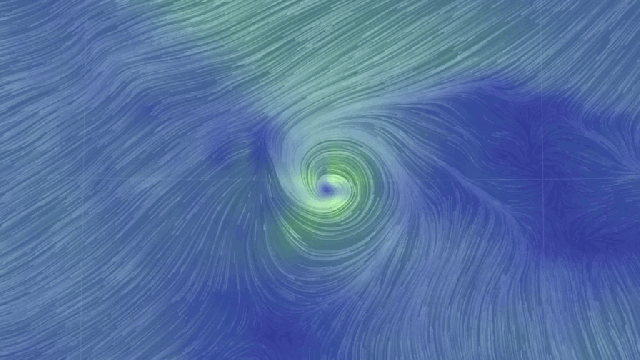Hurricane season is unfortunately alive and well, folks. As of Wednesday, two storms are brewing: Hurricane Douglas in the Pacific and Tropical Storm Gonzalo in the Atlantic. A third is also likely to spring up in the Gulf of Mexico later this week.
Gonzalo continues the spate of activity in the Atlantic, becoming the earliest seventh-named storm for the basin. It’s also likely to become the first hurricane of the Atlantic season. Meanwhile, Douglas is the first hurricane in the eastern Pacific and could threaten Hawaii this weekend.
Atlantic activity has been at a breakneck pace all season, with two storms forming before the season officially began on June 1 and a number of records as well. Prior to Gonzalo setting a record, Tropical Storm Fay was the most recent storm to break records by becoming the earliest-forming “F” storm in recorded history. In addition to Gonzalo, another disturbance in the basin is also likely to stir up in the next few days and could mark the earliest “H” storm in records dating back to the late 1800s. Oh, and Gonzalo also has a chance at rapidly intensifying into a stronger hurricane as it traverses warmer than normal ocean waters, a hallmark of climate change (though it will thankfully weaken as it nears landfall in the eastern Caribbean this weekend). What a shit show.
Camargo cautions against pointing to climate change right away, though. While rising temperatures have been connected to a rising intensity of hurricanes, it’s hard to tell how climate change impacts any particular event. Plus, Camargo notes that advanced satellite technology has made it easier for scientists to identify these smaller storms, which might’ve been missed in the past.
“This is certainly an active season in the Atlantic so far in terms of numbers, but based on a different measure of the hurricane activity, that includes intensity and duration, this season so far is actually below normal,” Suzana Camargo, a research professor at Columbia University’s Lamont-Doherty Earth Observatory, told Earther in an email.
Well, let’s hope it stays that way. Colorado State University had forecasted a more active-than-normal hurricane season, including an above average number of major hurricanes. The peak of Atlantic hurricane season is still nearly two months away.
[referenced url=”https://gizmodo.com.au/2020/07/atlantic-hurricane-season-keeps-setting-records/” thumb=”https://gizmodo.com.au/wp-content/uploads/2020/07/10/ysq6scvfxhyveh4wvs1p-300×160.gif” title=”Atlantic Hurricane Season Keeps Setting Records” excerpt=”Tropical Storm Fay formed on Thursday. It’s the sixth storm of the season and breaks yet another record in a season also teeming with them. Oh, and it’s also going to make for a really garbage weekend from the Mid-Atlantic to the Northeast.”]
In the Pacific, Douglas is expected to strengthen in the next day or two from its current status as a Category 1 hurricane with winds of 129 km/h into a major Category 3 hurricane on Thursday. It should weaken by Friday as it moves over cooler waters. That’s good news for the Hawaiian islands, where it’s supposed to approach this weekend, though the storm is still forecast to be a hurricane as it nears the Big Island on Sunday morning.
What’s most concerning, perhaps, about the hurricane season is the coronavirus. The pandemic seems to be growing more and more severe in the U.S., especially in southern states that bear the burden of the Atlantic hurricane season.
“For any hurricane this season, the potential of landfall in regions affected by the pandemic will be very complicated,” Camargo said. “The pandemic would certainly affect how the population and the FEMA will deal with evacuations and shelters.”
One crisis — ahem, a hurricane — is disastrous enough. Now, layer that over another crisis — ahem, a highly contagious virus? You’ve got one hell of a situation. Actually, more like a nightmare.
